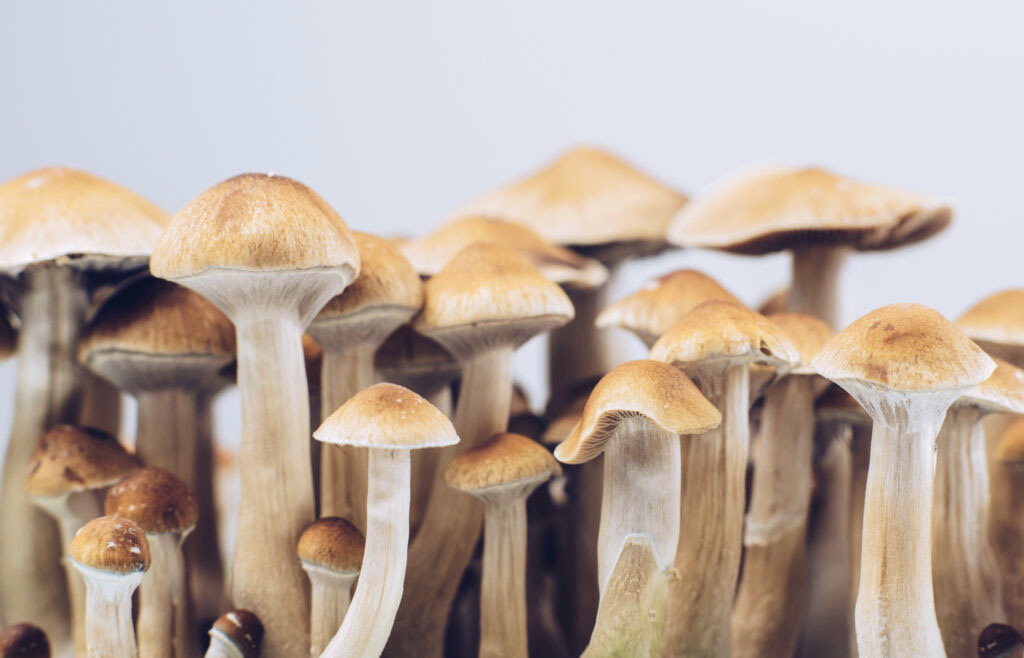The second major domino in the world of legalization and decimalization in the US has now fallen in favor of psychedelics. This major domino fall in the state of Colorado was the approval of Prop. 122, which will pave the way for psilocybin clinics in Colorado. November 8, 2022, voters in Colorado passed a ballot initiative to decriminalize possession of and legalize limited use of psychedelic mushrooms and other plant-and fungi-derived psychedelic drugs by those 21 years of age or older. The passage makes Colorado, which was one of the first states to legalize recreational marijuana, the second state to allow the use of psychedelics behind Oregon.
 Proposition 122, or the “Natural Medicine Health Act of 2022,” passed with 53 percent of Colorado voters supporting the initiative. Colorado voters saw the benefit of regulated access to natural medicines, including psilocybin, so people with PTSD, terminal illness, depression, anxiety, and other mental health issues can heal, wrote co-proponents of Proposition 122, Kevin Matthews and Veronica Lightening Horse Perez in an emailed statement to the Colorado Sun.
Proposition 122, or the “Natural Medicine Health Act of 2022,” passed with 53 percent of Colorado voters supporting the initiative. Colorado voters saw the benefit of regulated access to natural medicines, including psilocybin, so people with PTSD, terminal illness, depression, anxiety, and other mental health issues can heal, wrote co-proponents of Proposition 122, Kevin Matthews and Veronica Lightening Horse Perez in an emailed statement to the Colorado Sun.
With the passing of the Natural Medicine Health Act of 2022 (NMHA) which would legalize supervised or facilitated therapeutic sessions for 21 years and older using certain psychedelic plants and fungi including psilocybin, psilocyn, mescaline (excluding peyote), ibogaine, and dimethyltryptamine (DMT) (defined as Natural Medicines) by licensed individuals in state-approved settings (Natural Medicines Services). If passed, the NMHA would initially be limited to only psilocybin and psilocin until June 1, 2026, at that point the state may expand it to include DMT, ibogaine, and mescaline. Under the NMHA, Natural Medicines can only be taken at a licensed facility and commercial sale to consumers is strictly prohibited.
What’s included in the Natural Medicine Health Act?
Colorado’s new measure, Proposition 122, allows for:
- Coloradans do not need a certain medical or mental health diagnosis(es) to access Natural Medicine services. In fact, the NMHA does not mention a diagnosis in any capacity.
- The Department of Regulatory Agencies (DORA) must adopt rules to implement the NMHA and being accepting applications for licensure by September 30, 2024.
- Under the proposed regulatory scheme, an individual cannot have a financial interest in more than 5 healing centers. A “healing center” is an entity licensed by DORA to provide Natural Medicine Services or products/supplies related to Natural Medicine Services. Notably, “individual” is not defined in the current draft of NMHA, which suggests corporations may be excluded from this limitation.
- DORA must develop and implement a public education campaign related to the use of Natural Medicine, which includes training for law enforcement, first responders, emergency medical services, social services, and fire services.
- DORA must also engage in a study of the regulation of dosage for off-site use of Natural Medicines and report findings to the State Legislature.
- If passed, localities cannot ban or prohibit licensed facilities from providing Natural Medicine services within their jurisdictions.
- Employers would not be required to permit or accommodate the use, consumption, possession, transfer, display, transportation, or growing of Natural Medicines in the workplace.
In addition to this mega passing in Colorado, earlier this year the Colorado legislature enacted a law, which would legalize the prescribing, dispensing, transporting, posing, and using of MDMA prescriptions if and when the U.S. Food and Drug Administration approves the substance for prescription use. MDMA is on the cusp of FDA approval as a treatment for PTSD.
The non-profit Multidisciplinary Association of Psychedelic Studies (MAPS) is leading the development of MDMA and has just reported top-line results from a phase 3 trial of the drug combined with psychotherapy that it says could form the basis of a marketing application to the US regulator.
The 90-subject study found that after three MDMA-assisted therapy sessions, 67% of participants with PTSD no longer qualified for that diagnosis, while 88% experienced a significant reduction in symptoms, mirroring the findings of phase 2 testing.
The new trial – which has been published in the journal Nature Medicine – is the first of two phase 3 studies that will be needed to secure FDA approval. A second is underway in 100 subjects and if positive could result in a green light for the therapy in late 2023.
Stay tuned as more news is filling in monthly on the progression of the psychedelic field and wellness.
